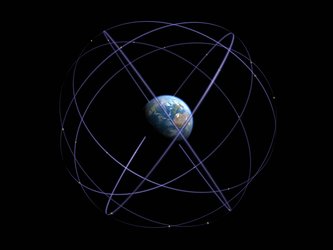First Colloquium on Scientific and Fundamental Aspects of the Galileo Programme
Enhancing the scientific use of Galileo and contributing to GNSS development based on scientific approaches are among the goals of the international colloquium on fundamental aspects and scientific applications of Galileo and GNSS that will be held in Toulouse from 1 until 4 October 2007 at the ‘Cité de l'Espace’.
By bringing together leading members of the European scientific community and their international partners, this Colloquium will be the opportunity for Galileo partners to discover the numerous uses of satellite navigation and the very sophisticated aspects of this cutting edge area.
Organised by Air and Space Academy, Bureau des Longitudes, Académie de Marine and ESA (European Space Agency), this colloquium is also meant to contribute to the 50th anniversary celebrations of the launch of Sputnik.
For scientists interested in the future scientific development of GNSS at large, there is still time to send a contribution, but this is the last week for submission of abstracts.
Three major issues will be addressed:
- the fundamental aspects of navigation by satellites and Galileo: geodetic and temporal reference frames, relativistic frame, on board and ground clocks, orbits, radiation environment in orbit, inter-satellite links, fundamental aspects of propagation, tropospheric and ionospheric corrections, calibration and validation, relations with international organisations (BIPM, IGS)
- scientific applications in meteorology, geodesy, geophysics, space physics, oceanography, land surface and ecosystem studies, using either direct or reflected signals, differential measurements, phase measurements, occultation measurements, using receivers placed on the ground, in airplanes or in scientific satellites
- scientific developments in physics and dealing with future systems, particularly in testing fundamental laws, in astronomy, in Einstein’s theory of special and general relativity, in quantum communication, new quantum clock synchronization protocols, and in advanced scientific utilization of future generation of atomic clocks on board GNSS
The purpose of this colloquium is to review the various possibilities to use navigation satellites such as Galileo for scientific purposes, and to investigate how these scientific requirements can contribute to make the most of the present systems, and define their future evolutions.
The conference will be organized as a series of plenary talks and two parallel half day sessions. Its scientific content is being organized by a European scientific committee leaded by Dr. Jean-Francois Minster. The deadline for submission of abstracts is 15 June. Abstracts may be submitted on line via the link on the right of this page.















 Germany
Germany
 Austria
Austria
 Belgium
Belgium
 Denmark
Denmark
 Spain
Spain
 Estonia
Estonia
 Finland
Finland
 France
France
 Greece
Greece
 Hungary
Hungary
 Ireland
Ireland
 Italy
Italy
 Luxembourg
Luxembourg
 Norway
Norway
 The Netherlands
The Netherlands
 Poland
Poland
 Portugal
Portugal
 Czechia
Czechia
 Romania
Romania
 United Kingdom
United Kingdom
 Slovenia
Slovenia
 Sweden
Sweden
 Switzerland
Switzerland



























